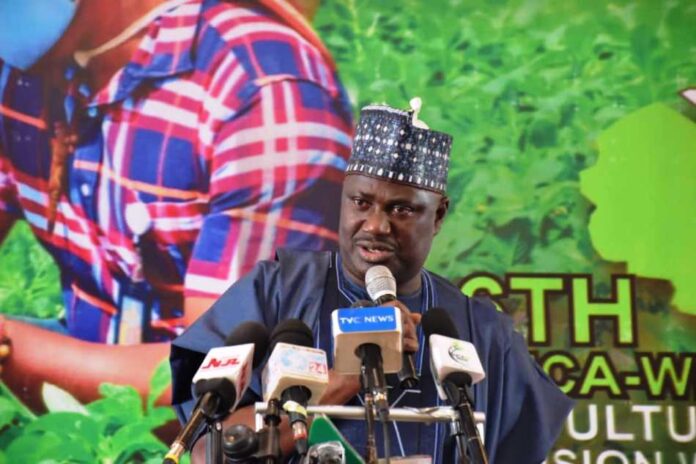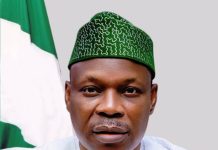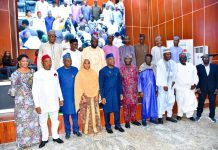
In line with President Ahmed Bola Tinubu’s Renewed Hope Agenda, to eradicate poverty, attain Food and Nutrition Security, Economic growth, inclusivity, as well as diversification of the economy from over reliance on petroleum, Federal Government has unveiled new documents (The Harmonized Extension Manuel and National Extension Policy) to provide pragmatic, effective, efficient demand driven and market oriented extension services to all stakeholders.
Speaking at the opening of the 6th Africa-Wide Agricultural Extension Week (AAEW), with the theme, “Harnessing Agricultural Extension and Advisory Services in scaling regenerative Agriculture and Nature-based Solutions for Food System Transformation in Africa”, recently, the President pointed out that Agricultural Extension plays a critical role in bringing about relevant and improved technologies developed by National Agricultural Research Institutions (NARIs), inputs suppliers and marketers to farmers, as well as to strengthen Agricultural Extension Delivery Services in Nigeria.
The President who was represented by the Hon. Minster of State for Agriculture and Food Security, Sen. Aliyu Sabi Abdullahi noted that the Ministry has put together, the first ever Harmonized Extension Manual in Nigeria and National Agricultural Extension Policy to effectively disseminate and deploy agricultural innovations/ technologies to end-users using appropriate extension methods.
He noted that the National Extension Policy seeks to provide a pragmatic, effective and efficient demand driven plurastic, ICT-enabled and Market Oriented Extension Services to promote sustainable agriculture and socio- economic development in Nigeria.
He pointed out that Agriculture must be market oriented as well as move away from the subsistence farming being practiced by smallholder farmers, stressing that to achieve this, government came up with programmes such as National Agricultural Growth Scheme- Agro-pocket where millions of farmers were supported through training on good Agricultural practices, certified inputs such as improved seeds and organic and inorganic fertilizers and irrigation equipment at highly subsidized rates to enhance production, increase productivity and ultimately higher incomes to farmers.
Speaking further, he reiterated that to develop the Agricultural sector towards the attainment of the objectives of Sustainable Development Goals (SDGs) especially those of zero hunger and improve agriculture and rural productivity.
He emphasized that Nigeria’s current plan was to achieve self-sufficiency in food production and reduce dependency on food imports.
In his remarks, the Permanent Secretary of the Ministry, Dr. Ernest Umakhihe, represented by Director Extension Services, Mr. Micheal Brooks stated that the 5th Summit was held in November, 2021, in Kampala, Uganda, noting that the Africa-Wide Agricultural Extension Week was globally to deliberate on strategic issues in Agricultural Extension and Advisory Services (AEAS) in Africa.
He pointed out that the purpose was to facilitate processes for improving the use of knowledge, technologies and innovations by agricultural value chain actors to achieve their individual and national development goals.
In his goodwill remarks, the Chairman, African Forum Agricultural Advisory Services, AFAAS Dr. Paul Fatch highlighted the importance of farmers and state the need to recognize farmers.
Highlight of the event was the unveiling of the Harmonized Extension Manual, the National Extension Agricultural Policy, Awards and Recognition of outstanding contributors to Agricultural Extension Services in Africa.
In attendance were representatives drawn from the Ministry’s development partners; Deutsche Gesellschaft für Internationale Zusammenarbeit (GIZ), United States Agency for International Development (USAID), African Agricultural Technology Foundation (AATF),Alliance for a Green Revolution in Africa(AGRA), African Forum Agricultural Advisory Services, (AFAAS), amongst others.
Eremah Anthonia (Mrs.)
Chief Information Officer
For: Director Information (FMAFS)





